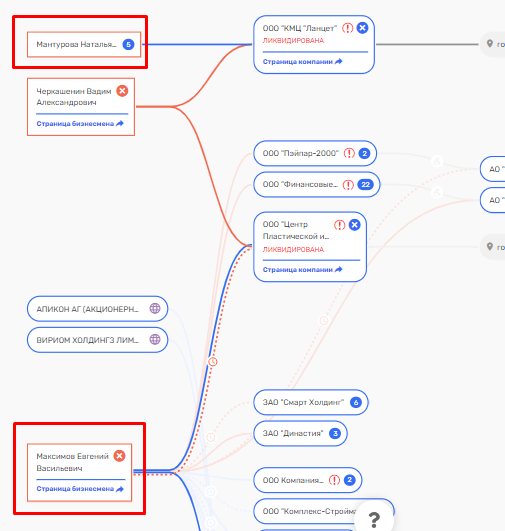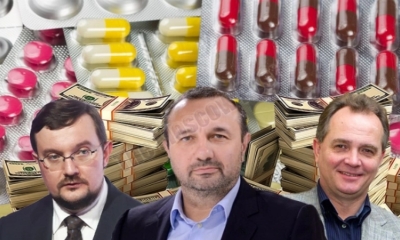Pharmacological companies with an ambiguous reputation intend to take on the implementation of the initiative of the Ministry of Science and Higher Education on the development of the drug industry in Russia.
.jpg?v1660295096)
The Ministry of Education and Science has developed a program according to which by 2030 it is planned to export 50 types of domestic medicinal products and achieve sovereignty in the pharmaceutical sector. 200 billion rubles are requested to achieve these results.
The correspondent figured out how much such a development of events is possible with existing indicators, and where the funds can actually go. The Moscow Post.
The project’s customers are the largest pharmaceutical manufacturers – Alexey Repik’s R-Pharm, Dmitry Morozov’s Biocad, Andrey Ivashchenko’s ChemRar.
All these companies are united by the fact of working with government agencies. Multimillion-dollar contracts annually bring very tangible profits, but the reputation of these pharmaceutical companies is very ambiguous. Here are just a few examples:
“Clockwork” story “Biocad”
Biocad, for example, in 2018 missed the deadline for the construction of a strategically important plant entrusted to it near St. Petersburg. It was served under the sauce of suddenly bursting Western sanctions, which confused all plans. Interestingly, other companies that built factories with foreign components at that time did not encounter such problems. The owner of “Biocad” did not even begin to name the companies that allegedly interfered with the implementation of plans.
This gave rise to thoughts that Morozov might simply be trying to get more subsidies from the state – a strategic project. Whether they were given more money or not is an open question, but, apparently, Biocad at least managed to avoid late fees.
Moreover, strategically important enterprises and their products are subject to numerous benefits. As a result, they went to a company that did not fulfill the terms of the contract.
At the same time, the company was building a plant in Finland. The project, the implementation of which was scheduled for 2025, did not even begin to draw by 2021. And here everything can again be justified by the Western sanctions that have burst out in 2022?
Detractors attribute “Biocad” to the circle of interests of the Deputy Prime Minister of the Russian Federation Tatiana Golikova. Rumors spread after the antimonopoly service suspected Biocad and Pharmstandard of cartel conspiracy in public procurement, Kommersant reported.
According to the authors of the Composition website, allegedly the owner of Pharmstandard, Viktor Kharitonin, “became a friend of the family of Tatyana Golikova and Viktor Khristenko” (Golikova’s husband and president of the Business Council of the Eurasian Economic Union). Indirectly, this information is confirmed by the fact that the son of Khristenko from his first marriage, Vladimir, began his career at Pharmstandard.
“Khimrar”: bribes, courts and scandals
Golikova’s surname is also associated with another initiator of the project – the KhimRar company. The fact is that it was this company that was among the first to receive the “go-ahead” from the Ministry of Health for the release of a medicine for COVID-19, but in a number of countries it was recognized as ineffective, which gave rise to rumors about the purely commercial interest of all those involved in its creation and promotion. .
In addition, the chairman of the board of directors of Khimrar Andrey Ivashchenko is a member of the expert council at the Ministry of Industry and Trade. The connection can also be traced with the family of the head of the Ministry of Industry and Trade Denis Manturov.

LLC Elpida, which enters the orbit of KhimRama, is registered, among other things, in the name of Evgeny Maksimov. He owns a stake in the “Center for Plastic and Endoscopic Surgery”. It is headed by Vadim Cherkashenin, who also heads the Lancet CMC, registered as the wife of Denis Manturov. Photo: https://www.rusprofile.ru
ChemRar also shone in another ugly story – then business development director at the company Evgeny Spektor was arrested for taking a bribe to the former assistant to the former Deputy Prime Minister of Russia Arkady Dvorkovich Anastasia Alekseeva. This was reported by Kommersant.
The bribe, according to the defense, was allegedly transferred for assistance in amending Order No. 183 of the Ministry of Health of 2014. Of particular interest was the item on the inclusion of drugs produced by bribe-givers in the list subject to subject-quantitative accounting.
Vadim Belonozhko, adviser to the general director of JSC R-Pharm, was among those who transferred the money. So the customers of the new project met?
“R-Pharm” – a monopolist with a scandalous odor
R-Pharm, perhaps more than the above-named firms, shone in courtrooms. In 2018, the company lost a dispute with Nativa on the recovery of debt under a drug supply agreement. Repik’s firm did not pay then more than 112 million rubles. This was reported by Kommersant.
Repic, apparently, was not satisfied with the outcome, and he threw another scandal, accusing the plaintiff of trying to divert attention from his own proceedings with foreign owners of drug patents. By the way, Nativa is considered close to Pharmstandard. I wonder how the competitor of this company will work with Biocad? Will another division begin – this time of budgetary funds?
Given that in 2018 R-Pharm was going to monopolize the market for HIV drugs, the fight is likely to be very hot. Only while big businessmen will “squabble” who will take care of the population?
In 2017, the Patient Control organization accused R-Pharm of disrupting the supply of HIV drugs, Versiya reported.
Alarming bells about what is happening with medicines in the country sounded last year – Russia was already predicting a shortage of systemically important drugs. The All-Russian Union of Patients and a number of other organizations wrote a letter to Mikhail Mishustin. In it, they expressed concerns about the mechanism proposed by the Ministry of Industry and Trade for public procurement of medicines.
It involves the abolition of competition among private companies in the supply of medicines to hospitals and clinics. The winner in the state auction should automatically become the one who has established full-cycle production on the territory of the Eurasian Economic Union (EAEU). The same “R-pharm” and “Biocad” were the initiators. Having received a monopoly, the contractor will be able to raise prices and not the fact that he will satisfy all the needs of the population, as we have already seen.
Outcome
Western companies spend billions of dollars on the development of new drugs, and the project’s customers believe that 200 billion rubles will be enough for them for eight years. This once again indirectly indicates that this money can by no means go to support the industry, but rather into the pockets of a certain circle of interested people.









